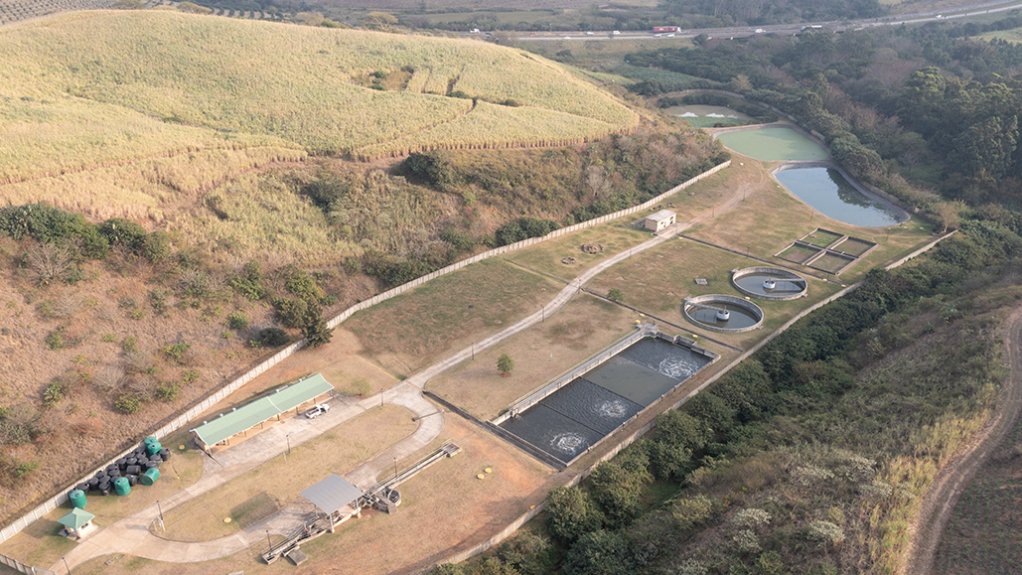The public service is opening up opportunities for public–private partnerships (PPPs) to supply water to municipalities.
This was identified during a seminar held on February 2, 2023 by the Vuthela iLembe Local Economic Development (LED) Support Programme in KwaZulu-Natal.
Vuthela programme manager Richard Clacey said owing to the 30-year contract between the then Borough of Dolphin Coast and water services company Siza Water to provide water to communities of the KwaDukuza local municipality, soon expiring, it was paramount to generate a full understanding of what had happened over the past 24 years.
The Vuthela iLembe LED Support Programme – which aims to share stakeholder experiences of South Africa’s first PPPs for water services – is a five-year programme designed to improve the economic future of the iLembe district, in KwaZulu-Natal, through sustainable growth of the local economy, and the creation of inclusive employment and income generating opportunities.
The programme comprises five inter-related components: strengthening the financial management of municipalities, improved planning and addressing constraints around municipal infrastructure, addressing obstacles to doing business in the district, supporting small, medium-sized and micro enterprises in strategic growth sectors, and promoting partnerships between government, business and civil society.
Vuthela is funded by Switzerland's State Secretariat for Economic Affairs, in partnership with the KwaZulu-Natal Department of Economic Development, Tourism and Environmental Affairs, the iLembe district, as well as the KwaDukuza and Mandeni local municipalities.
During the seminar, the views of various municipal officials, agencies, private developers, ward representatives, Siza Water management and other stakeholders on how the Siza Water concession has operated over the past 24 years were heard.
Clacey pointed out the seminar had proven the immense value of sharing diverse perspectives and dialogue when dealing with complex issues in the process of economic development.
Meanwhile, growing appreciation of the value of PPPs to provide efficient services was emanating from national government circles, he said.
A dedicated unit has been established as a partnership between the Department of Water and Sanitation, and the Development Bank of Southern Africa to accelerate private-sector participation in providing water services.
“This comes as many municipalities are losing the battle to provide secure water services for an expanding consumer base . . . amid rising costs, diminishing resources and high levels of nonpayment for services,” stated Clacey.
Siza Water MD Shyam Misra noted that Siza implemented innovative technology solutions in many areas of its operations, making the water supply highly efficient.
The company has invested about R500-million in water infrastructure, which includes upgrading seven reservoirs, six sewer pumpstations and two sewer treatment works. These projects were financed through developer contributions or Siza Water’s own funds.
“The company has reduced losses in the water system from 33% in 1999 to 8% in 2021.”
However, KwaDukuza municipality Economic Development and Planning executive director Sikhumbuzo Hlongwane sais investment in new infrastructure in low-income areas did not materialise, and indigent communities in these areas were not receiving equitable services.
“PPPs perpetuate inequality and underdevelopment.”
He says the PPP’s area of jurisdiction consisted of the affluent areas of Ballito, Salt Rock, Shaka’s Rock and Tinley Manor, as well as the poor areas of Nkobongo, Shayamoya, Shakashead, Etete and Shakaskraal.
Over the past 24 years, Siza Water had not made an effort to invest in the poor areas; thus, most of the communities received water on standpipes and had ventilated improved pit (VIP) or pit latrine toilets.
One of the main goals of the PPP was to use the alternative service delivery mechanism to address imbalances in the provision of services and reverse the legacy of apartheid spatial planning. The PPP failed to embrace the importance of cross-subsidisation of the poor communities under its jurisdiction, stated Hlongwane.
“After 24 years we cannot celebrate this as a success if more than 85% people living in those areas, which were classified as African townships during apartheid, continue to use VIP toilets and standpipes.”
Head of the iLembe district economic development agency Linda Mncube, meanwhile, said that PPPs had “great potential for efficient service delivery”.
However, contracts should set targets for capital investment to unlock development.
Equitable profit-sharing models should be created, and the concession’s tariff structure and finance model should cater for the redistribution and provision of a higher level of service in historically underserviced areas, she added.
The Water Partnerships Office (WPO) and the South African Local Government Association will collaborate to resolve some of the issues.
The WPO is developing standardised national programmes for private-sector participation in municipal water and sanitation services, and will also support municipalities to prepare bankable projects, undertake feasibility studies and financial structuring, as well as facilitate blended financing, which includes direct foreign investment.
WPO head Johann Lubbe said while municipalities faced financial and technical constraints, South Africa’s private sector has “substantial expertise”.
“There must be a focus on projects with sufficiently large and sustainable revenue streams. The larger the revenue stream in relation to the investment and the more sustainable the revenue stream, the greater the likelihood that the project will be bankable.”
Edited by: Zandile Mavuso
Creamer Media Senior Deputy Editor: Features
EMAIL THIS ARTICLE SAVE THIS ARTICLE
ARTICLE ENQUIRY
To subscribe email subscriptions@creamermedia.co.za or click here
To advertise email advertising@creamermedia.co.za or click here













